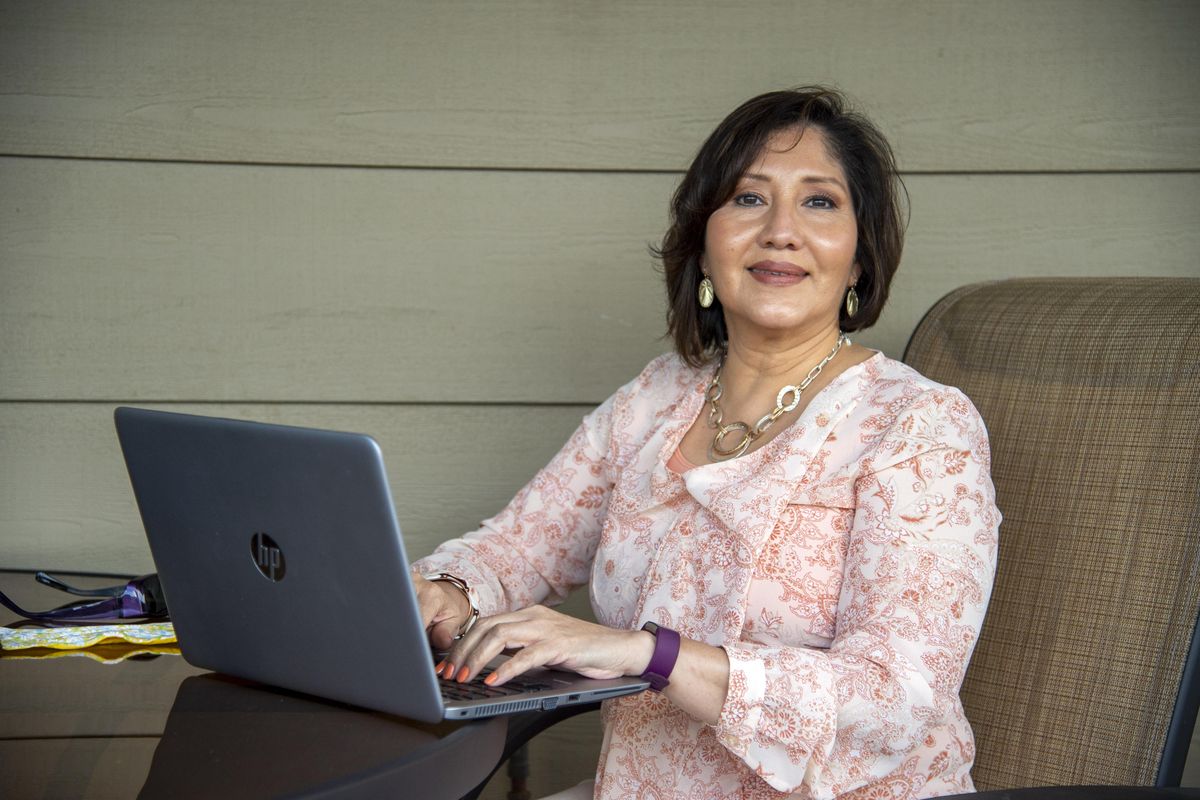Psychiatric nurses stay connected to patients, despite isolation orders

Even when you’re in isolation, you’re not on your own.
Like so many other professionals in the pandemic, Damaris Aragon, a Spokane-based psychiatric nurse practitioner, is working from home.
But she’s still available.
“We want to help, and so please reach out, because you’re not alone. This is a time when it’s more critical that we ask for help,” Aragon said.
Advanced practice psychiatric nurses, accustomed to treating patients face-to-face, have quickly adapted their practices to continue counseling and prescribing medication to patients with a broad array of mental health needs that are only exacerbated by the stress of the COVID-19 pandemic.
For Aragon, the shutdown meant transitioning from her downtown Spokane office to an at-home telemedicine practice in the span of about 48 hours.
It was not without challenges. A phone call would get disconnected, a screen would freeze. It’s only been within the last week that the new system has gotten consistent.
“It is a lot harder to do it, so it has required a lot of courage. … This is not how I’ve done nursing over the last 26 years,” Aragon said.
Advanced practice psychiatric nurse practitioners are highly educated and licensed to diagnose and treat conditions like anxiety and bipolar disorder.
Melody Bemis has worked as one at Frontier Behavioral Health for a decade. Her interaction with patients is not focused on counseling, because sessions are limited 20 minutes, except in the case of a first-time patient, who undergos an hour-long session.
Instead, Bemis’ work is mainly to diagnose and prescribe medication to patients based on their individual needs, while other clinicians and counselors are available to see patients at least once a month.
Bemis follows up with patients regularly to ensure the medication she prescribed is working for them.
That work has continued during the COVID-19 pandemic, but from her own home.
“It does impact because I think you can always get a better assessment if you see somebody in person,” Bemis said.
Now, Bemis interacts with patients over the phone, although there is hope that Frontier Behavioral Health will be able to add video conferencing as an option for patients who have access to the technology.
Luckily, many of the patients Bemis has talked to over the phone have already been into the Frontier Behavioral Health center she operates in, so she has an established relationship with them.
She makes it a point to remind patients she is almost always available by phone.
“If they have any questions, they can always call,” Bemis said.
For psychiatric nurses, working from home has been no vacation.
“I think we’ve tried to make our schedule a little bit lighter each day because of working remotely, but it doesn’t always turn out that way,” Bemis said.
Aragon, who operates her own practice, answers the phone, schedules appointments and treats patients – “everything except for the billing,” she said.
“I don’t have a boring day. Every single day is different for me. It has its challenges, because I’m a single-practice person,” Aragon said.
Aragon looks at COVID-19’s impact on the health care system globally, and knows she has a role to play. She doesn’t want psychiatric patients to end up in the hospital, now more than ever.
“Mental health services are really critical,” Aragon said.
Aragon has worked as a nurse for more than 20 years, but it was only in 2013 that she graduated from Gonzaga University and entered the field as a psychiatric nurse practitioner, launching her own practice in Spokane.
After years working with patients with chronic conditions, “it occurred to me I was talking to patients who had schizophenia and were there for diabetes, or people who had surgery who had depression or anxiety,” Aragon said.
Now in the mental health field during a pandemic, she’s worried about patients’ conditions worsening if they stop taking their medication and about patients relapsing if they have a history of substance abuse, for example. For the first couple of weeks after the pandemic brought life to a halt, it also brought a drop in the number of calls Aragon received.
But now, she’s seeing an uptick.
“It has to do a lot with anxiety,” Aragon said.
Aragon is recommending the patients – and everyone else, for that matter – make a conscious effort to get out in the sun for 30 minutes every day. Take a walk as a family or alone. Drink that first cup of coffee on the porch if you have one. And try not to read the news right before going to bed.
“Think of this as a time you’re protecting yourself, rather than this being forced on you,” Aragon said.
Likewise, Bemis recommended people seek out the sunshine.
“I always encourage (patients to) go out for a walk, get some fresh air – just keep your social distance,” Bemis said.
Bemis and Aragon both highlighted that for those in crisis, there is a 24-hour hotline at (877) 266-1818 operated by Frontier Behavioral Health.
“What I want people to know right now is that we are here, we are here for them,” Bemis said. “Things might be shut down, but we’re still available.”